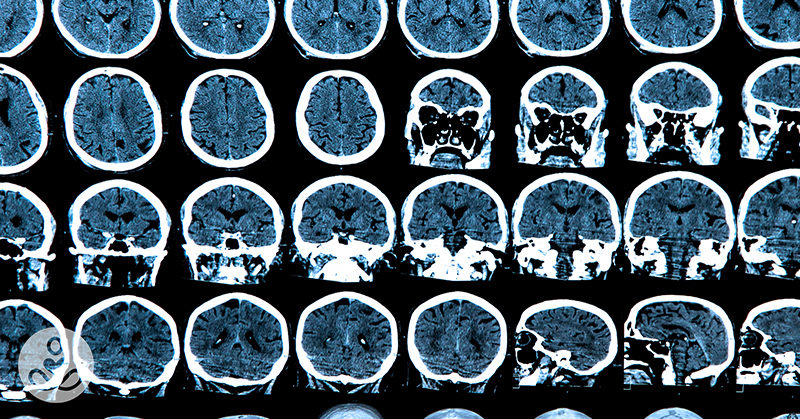This article was originally published in June 2017 and has since been updated.
Neurodegenerative diseases affect millions of people each year in the US alone. 5.3 million people are diagnosed every year with Alzheimer’s, which is just one of the long list of diseases that cause neurodegeneration. (1) Research is constantly being done to better understand these diseases, looking for medications and treatments, and how to prevent them entirely.
So far, we have not been able to find a sure-fire cure for neurodegenerative diseases, until now. Scientists have found that perhaps the cure for neurodegenerative diseases isn’t in developing new drugs but in repurposing old ones.
What are Neurodegenerative Diseases?
Neurodegenerative diseases are a range of conditions that affect the neurons of the brain and the brain cells. When your brain cells become infected with a virus, the virus causes the cell to produce viral proteins for the pathogen, which build up in the cell. To fight this, the brain cell reacts by stopping all protein production in the infected cell or cells. When this becomes prolonged, the cells starve themselves and die, causing neurodegeneration. (1, 2, 3, 4)
The issue here is that brain cells cannot reproduce or repair themselves, so once they die, that cell is gone forever and won’t be replaced by a healthy, working cell.
Types of Neurodegenerative Diseases
There are two main types of Neurodegenerative diseases (2, 6,7):
- Ataxias: Cause problems with movement (Parkinson’s Disease, Huntington’s Disease) (2, 6)
- Dementias: Cause problems with mental functioning. (Alzheimer’s Disease, Lewy Body Dementia) (2, 7)
Many ataxia’s and dementia’s overlap, for example Parkinson’s is considered both a dementia and an ataxia.
2 Potential Dementia Medications
The key to reversing and treating diseases like Alzheimer’s, Parkinson’s, and Dementia is to prevent brain cells from overreacting to pathogens and shutting down protein production in the cells. (3, 5)
In 2013, researchers discovered a compound that could do just that. Unfortunately, while this compound prevented brain cells from dying, it simultaneously damaged the pancreas. (3, 5)
Instead of trying to develop a new drug, these scientists began screening over 1000 drugs that already exist and are used for other conditions. Through this research, they came across two that seemed to work:
- Trazodone: Used to treat clinical depression (3, 5)
- DBM (dibenzoylmethane): Found in small amounts in licorice, currently in clinical trials for treating cancer. (3, 5)
Not only do these two compounds work in the same way at preventing brain cell death in mice, but they had no effect on the pancreas. After taking these drugs, the mice began performing better on memory tests, and researchers have moved on to testing these compounds for treating dementia in humans. (3, 5)
While these drugs may not be a cure, they certainly have the power to slow down the progression of these devastating diseases, change and improve the way we treat those suffering from neurodegenerative diseases. (3, 5)
Prevention is Key: How to Prevent Neurodegenerative Diseases
Of course, the best way to avoid needing drugs or risking potential side effects from conventional medicine is to prevent these diseases before they happen. There are plenty of lifestyle factors to be considered that will help prevent Alzheimer’s, Parkinson’s, dementia, and other neurodegenerative diseases.
3 Tips to Prevent Dementia and Neurodegenerative Diseases Naturally
1. Exercise and Physical Activity

Among the many benefits of exercise and physical activity are the positive effects they have one the health of our brains. When we exercise, we increase the number of small blood vessels that deliver blood to our brains and we increase the number of brain-nerve connections. Essentially, physical activity stimulates our brains to take care of our old connections and create new ones, keeping this vital organ young and healthy. (8)
Even just thirty to forty minutes a day of light aerobic or non-aerobic exercise can have a tremendous impact on the health of your brain. (8) Incorporating exercise into your day doesn’t have to be complicated or arduous. Try one of these simple routines to get moving.
2. Eat a Healthy Diet
Turns out “brain food” is a real thing! Diets high in vegetables, fruits, whole, unprocessed grains, and healthy fats (especially omega-3 fatty acids) all promote brain health. What isn’t in your diet is just as important as what is: Avoid refined sugars, salt, and processed chemical-filled foods. (8)
Consider following the principles of the Mediterranean diet for more healthy-eating guidelines.
3. Stay Social and Keep Your Brain Active
Though it is still unclear as to how it works, researchers have found that the more socially active you are, the healthier your brain will be. Elderly people who live with someone else, attend more social functions, continue to work or volunteer, have healthier brains. (8)
Other activities, such as reading, going to lectures, playing games, and listening to and playing music also help to keep the brain active and healthy. (8)
While natural medicine is preferred and it is better to prevent neurodegenerative diseases instead of trying to cure them, these findings are exciting and are one step closer to saving the minds and lives of millions of people worldwide. We will continue to monitor the progress of these drugs to keep you as up-to-date as possible on their efficacy and if any side effects arise.
This information is not intended to be a substitute for professional medical advice, diagnosis or treatment and is for information only. Always seek the advice of your physician or another qualified health provider with any questions about your medical condition and/or current medication. Do not disregard professional medical advice or delay seeking advice or treatment because of something you have read here.
Sources
- (1) https://www.ellisonfoundation.org/research/neurodegenerative-disease
- (2) https://www.neurodegenerationresearch.eu/about/what/
- (3) https://www.iflscience.com/health-and-medicine/two-drugs-identified-that-could-halt-the-progression-of-neurodegenerative-diseases/
- (4) https://www.jci.org/articles/view/17522
- (5) https://www.nature.com/nrneurol/journal/vaop/ncurrent/full/nrneurol.2017.71.html
- (6) https://www.movementdisorders.org/MDS/About/Movement-Disorder-Overviews/Chorea–Huntingtons-Disease.htm
- (7) https://www.alz.org/dementia/types-of-dementia.asp
- (8) https://www.nia.nih.gov/alzheimers/publication/preventing-alzheimers-disease/search-alzheimers-prevention-strategies

